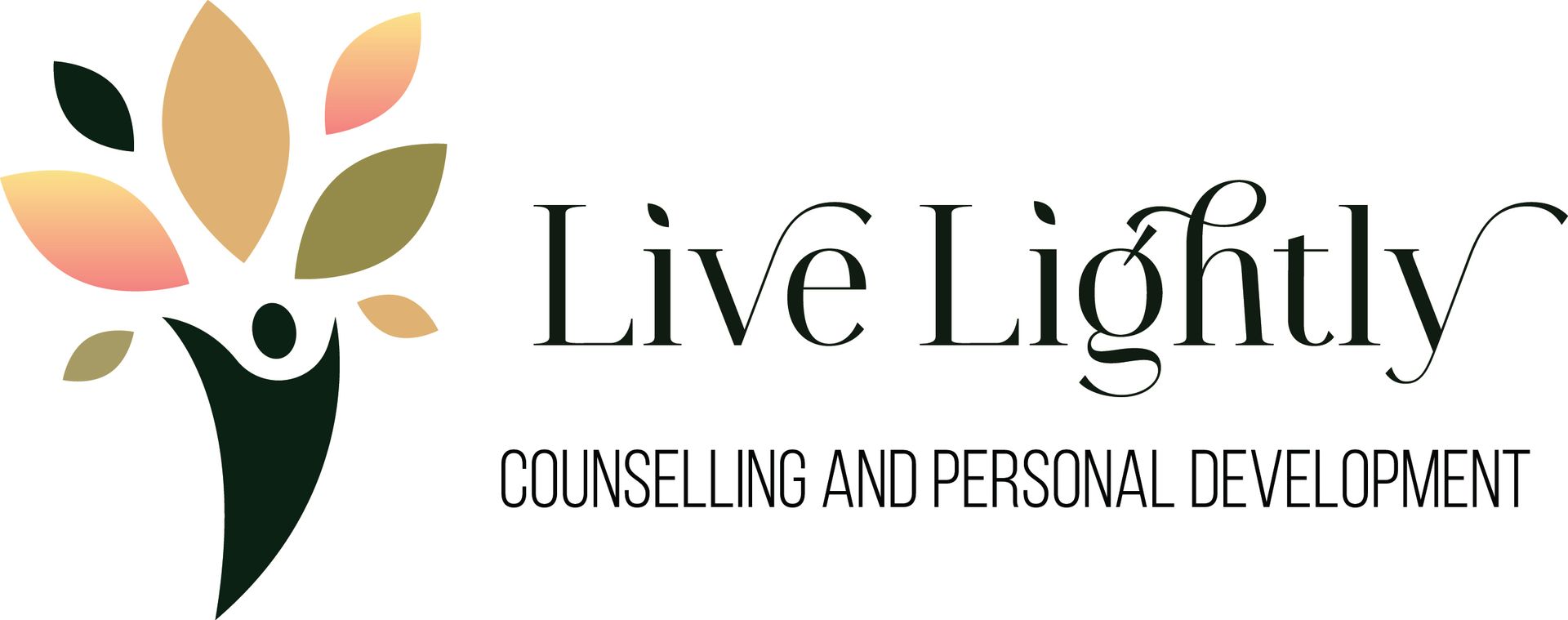
Blog Layout
Fathoming Forgiveness - Part One
When an offense is repeated over and over (and over) again, or when a betrayal cuts so deep you can barely breathe, or the selfishness of another’s actions shifts your life path down a very dark, long, and difficult road; the concept of forgiveness can seem next to impossible to envision, let alone practice.
From a counselling perspective, studies have shown that those who practice forgiveness have healthier relationships, improved mental health, less anxiety, stress, and hostility, lower blood pressure, fewer symptoms of depression, a stronger immune system, improved heart health, and improved self-esteem* – it is undoubtedly a key to wholistic health. From a personal perspective, my experience of the benefits of forgiveness is the peace in my heart it brings - and the sound night’s sleep!
The next two blogs will present three insights about the topic of forgiveness, including some practical tips to help walk the journey.
Insight One - Recognize true forgiveness is a heart issue.
We cannot be fooled into thinking we have forgiven just because we have decided to. It is very true that the first step towards forgiveness is to make the choice to forgive (regardless of whether we feel like it or not). However, we must be diligent to make sure we continue on in our journey to make sure our heart gets involved in this decision. It is also helpful to remember that forgiveness is not necessarily about reconciliation or justice, it is about a healthy soul.
Some tips to check whether our heart has forgiven;
1. Do an honest assessment of how your heart feels. Does the area around your chest feel full and peaceful? Or does it feel tight, cracked, heavy, hard, or in pain?
2. Do an honest assessment of the words which flow out of your mouth. Are your unguarded words loving, kind, grace-filled, and edifying or are there hints of harshness, sarcasm, cynicism, or bitterness?
3. Give your heart a little test. Start to think of the offending situation or person and notice the reaction you have. Do you feel peaceful, free, and loving or do you feel a tightness, sense of injustice, anger or bitterness start to rise up inside?
Please do not feel upset if you notice some of the ‘not so nice’ characteristics occurring inside of you. Instead, be grateful there are warning signs that this issue needs to be addressed (or re-addressed) – it means there will be more healing and freedom for you on the other side!
Remember this, it is not just a good idea for us to pursue forgiveness, but it can actually be a life-altering decision. The choice of whether we forgive or not forgive will take us on very different pathways in life with different consequences. It is a beneficial choice to take some time to fathom forgiveness. Warmest regards, Anne-Maree
Please note. If the content of this blog has a triggering effect on you and you begin to feel overwhelmed, please reach out to a therapist, mentor, or a trusted friend.
*Toussaint L, Shields GS, Dorn G, Slavich GM. Effects of lifetime stress exposure on mental and physical health in young adulthood: How stress degrades and forgiveness protects health. J Health Psychol. 2016 Jun;21(6):1004-14. doi: 10.1177/1359105314544132. Epub 2014 Aug 19. PMID: 25139892; PMCID: PMC4363296.

By Anne-Maree Choi
•
November 1, 2024
Thank you so much for the time you put into us Anne-Maree. Online couples therapy was over and above our expectations and God did amazing things! Learning the skills and practicing the conversations definitely gave us a better understanding of each other to work on from here. A.W. - Scenic Rim, QLD

By Anne-Maree Choi
•
July 20, 2024
Working with Anne-Maree has profoundly enriched our marriage, and the impact of applying the insights gained from our sessions cannot be overstated. From enhancing our communication to deepening our understanding of each other's viewpoints, Anne-Maree skillfully guided us while ensuring we stayed focused on achieving the outcomes essential for strengthening our relationship. We firmly advocate for couples to engage in this type of therapy, as it empowers and supports individuals to embrace their true selves. Truly, it is an invaluable resource for a fulfilling life together. - R.W. Brisbane

By Anne-Maree Choi
•
April 5, 2024
We wanted to say "Thank You" so much for seeing us! I honestly believe that God led us to you, my only regret is that we didn't reach out earlier. Your ability to hear our heart concerning the difficulties and heartbreak we were experiencing in a relationship breakdown was so comforting. You have given us so many wonderful, helpful, godly strategies to not only work at mending the relationship in a healthy way but to evaluate and grow in our own personal response to conflict. S. D. - Brisbane

By Anne-Maree Choi
•
February 1, 2024
I heard a story recently of a woman named Sarah*, who cared for an eleven-year-old child named Amy*, who was not her own for two years. Amy came into the home with enthusiasm, however, caring for Amy stretched Sarah almost to breaking point. Why? If this had occurred today, we would have applied the term ADHD or neurodivergent to Amy, which would have brought a truckload of understanding to Sarah. However, at the time, all Sarah knew was that Amy could barely remember to do anything she was told, often displayed hyper and disruptive behaviour, was easily distracted, and could hardly concentrate on anything put in front of her. In Sarah’s mind, she was just rebellious and difficult. Resentment began to build as the previously peaceful, happy home she managed was permeated with continual frustrated reprimands, breaking up fights between children, and monitoring activities painstakingly closely to make sure tasks were completed – it was exhausting. Sarah wanted to end the childcare arrangement with everything in her, but instead, cried out to friends for support, went to a counsellor to vent, researched parenting strategies, drew on her inner strength and prayed daily, put on her endurance hat, and did her very best to show unconditional love and support to this child. She felt like she failed miserably, time and time again. When the time came for Amy to leave, it was an understatement to say that Sarah was relieved, she was counting the days. However, one day everything changed. Amy came into Sarah’s bedroom and sat on the end of her bed, she was crying. “What’s the matter Amy?” Sarah tenderly asked. “I don’t want to leave” stated Amy tearfully. Sarah was surprised, ‘surely Amy has had enough of me’ she thought. “Why don’t you want to leave Amy?”. At twelve years of age, Amy spoke with a profound wisdom beyond her years “I know you love me because you make me eat breakfast every morning. I know you love me because you make me do my homework. I know you love me because you work to want the best for me…” She went on, but Sarah had stopped listening, her jaw dropped in amazement. She had honestly thought she had done nothing but make Amy feel like she wasn’t loved, it was now very obvious that the opposite had occurred. Sarah learned a big, perspective-changing lesson that day about what makes a child feel loved. She realised it was all about meeting basic needs and teaching basic disciplines, not giving up, showing kindness when it is undeserved, apologising when mistakes are made. It is about endurance, sacrifice, unconditional kindness, and being present – day in, day out. Somehow, all of those actions communicate love, despite the multitudes of frustrated commands, disciplinary actions, and reactive behaviours. What does love look like? I suspect it is quite different from what we think it is and it is probably different for every person. What is important to know from this story, is that we need each other to help us in our 'learning to love' journey, it is so important to draw on others when we struggle. It often does take endurance and we should never try to do it alone. Had Sarah not reached out for help, she would have given up, and missed the opportunity to show love in a real and powerful way. Warmest regards, Anne-Maree *Names have been changed in this story to protect privacy.

By Anne-Maree Choi
•
October 3, 2023
In my experience as a counsellor, when it comes to forgiveness, I often hear the words “I have already dealt with that” come out of people’s mouths, and indeed, I have said it myself on plenty of occasions. The thing is, we fail to realise how complex we are and how emotional wounding affects us. The effects of wounds from others (particularly repeated wounds) can weave their way all through our hearts and minds, even affecting the core of who we are. I often think of the “onion analogy” – made famous by ‘Donkey’ from the movie Shrek – that our hearts are made up of many layers. Depending on how deeply the wounds have penetrated will determine how many layers will have to be worked through to get to the root. This takes time and perseverance. Often, we don’t even know how deep the wounds run until something seemingly insignificant triggers a response that is completely out of proportion to a typical response. Insight Two - Recognise true forgiveness usually comes after a long journey of intentional work. So then, what’s next? You may have thought something was dealt with but now you are not so sure. Maybe it is time to address the next layer of hurt. Some practical tips: 1. Adorn yourself with humility, honesty, and courage. There is a good chance your defense mechanisms may fight you along the way as you address your hurt. Pride can surge, you may lie to yourself, or you may be tempted to withdraw in fear (it can be really frightening facing some emotions!). 2. Journalling can be an extremely effective technique. On a fresh page, start with this sentence “I feel… because… and I need…” and fill in the blanks. This little sentence can be very powerful in identifying deep emotions and needs. Take the time to wait for insight to surface as you journal, do not hurry the process. Then when the accompanying emotions arise, allow them to have full expression as they fill your being, followed by release. Do not push the emotions down! You may need to groan or shout with rage, scream into a pillow, or allow yourself to sob. 3. Write a letter to the offender. You do not need to deliver it, but imagine they will read it and really dig deep to try and express how you feel in writing, then experience and release the emotions as outlined in Point 2. 4. Seek understanding as to why the offender did what they did. Often there is a lot more to the story than we had realised, and when we comprehend this the hurt somehow lessens. Please note: It does get more challenging to identify what is going on inside of you the deeper you go, and you may need to see a professional therapist who can help you pinpoint the issues if you feel stuck. Insight 3 - Recognise true forgiveness cannot be attained until we have a strong sense of our own identity. Usually, the path to forgiveness will be two-fold. It will involve a time of working through a layer of pain, and also a time of deepening our understanding of our identity and how amazing we truly are as human beings. Then once we are stable again, we move to the next layer of hurt and the cycle begins again. We cannot delve into certain wounds unless our hearts feel safe and are filled with enough love and affirmation to weather the strong emotions of hurt and betrayal. Taking time to comprehend our true value, our strengths, attributes, skills, and gifts, and defining our purpose, can lay a strong foundation of self-assurance, which can give us the capability to fully release all those who have ever hurt us from what we feel they owe us. Remember this, it is not just a good idea for us to pursue forgiveness, but it can actually be a life-altering decision. The choice of whether we forgive or not forgive will take us on very different pathways in life with different consequences. It is a beneficial choice to take some time to fathom forgiveness. Warmest regards, Anne-Maree

By Anne-Maree Choi
•
June 1, 2023
What I love about my Personal Development Program - Post #8. Conflict. I haven’t met many people who embrace conflict, most tell me they try to avoid it and I understand the reasons why. The emotions associated with conflict – awkwardness, pain, misunderstanding, offense, self-doubt, hurt, resentment, guilt, even rage – are highly stressful. These are emotions we would be happy to live without if we had the choice, but we don’t. Conflict is an inevitable part of life. The fantastic news is there are skills we can develop which make conflict much easier to handle, and not even just handle, but result in pleasing (and even healing) outcomes. I love watching my clients grow in confidence as I coach them in these new skills and help hone their use of them in role plays. They walk out of the session feeling strengthened and empowered to address their respective situations - and it is so exciting when they report back to me their success stories! In addition to handling conflict, my program also covers general communications skills, learning to listen, assertiveness training and – one of my favourites – avoiding manipulation. These are all skills which can significantly affect the quality of our relationships and are well worth the time and investment to become equipped in. Warmest regards, Anne-Maree

By Anne-Maree Choi
•
March 28, 2023
Choices are a large part of life, in fact that is an understatement, they are a huge part of life! If you do an internet search on how many choices the average adult makes every day, the figure 35,000 keeps popping up. It sounds exhausting – and it certainly can be!! So why have I focused on the topic of choices in my blog today? It is because making good choices is so fundamentally important to achieving optimum quality of life. A compilation of thousands of positive choices a day can accumulate to result in prosperity of our body, mind and spirit – that which we all strive for. However, it can be very, very difficult to consistently make these good choices. Whether it is choosing what to wear, what to eat, how to communicate in a conflict situation, what career to choose or even who to marry – making choices can be very challenging. Encouragingly, a well-known wisdom book let’s us know that good choices are always right in front of us, they are not too difficult for us and are not out of our reach.* At a basic level, It's just a matter of choosing the best option. Take three minutes to watch this excellent animation which so beautifully communicates the truth of what I am saying. https://www.youtube.com/watch?v=_HEnohs6yYw Yet, we struggle. It’s all easier said than done. Why? There can be many, many different reasons. Perhaps it is because we don’t know we are making poor choices. Perhaps it is because we are feeling weighed down and the good choice requires too much effort or is distasteful to us. Or perhaps we have tried before and failed to be consistent in our approach. Or it could be because we lack courage to try a new choice. This is where counselling and coaching comes in. We are not meant to do life alone and having another person’s understanding, support, insight and healthy ideas can make all the difference. Also, sometimes the right choice may not be very popular with those around you and you need support to buckle down on your convictions and make a stand for what is right for you. If you are travelling through a season in life where making good choices is challenging or overwhelming, let me encourage you to take the step to reach out to a trusted friend or a professional to talk with and receive support. I am pretty convinced this will be a choice you will be very glad you made. Warmest regards, Anne-Maree *(The Bible, Deut. 30:11-15)

By Anne-Maree Choi
•
March 22, 2023
Thanks Anne-Maree for your gentleness and approachableness. Our marriage had been through illness, unemployment, and along with the pressures of life, it felt like our situation could not be resolved. Thankfully through a trusted source you were recommended (this was after many years of prayer). In just a phone call we were able to make an appointment: to link up on Skype in the comfort of our own home. Thank you for your non-judgemental way, and for listening and introducing us to healthy strategies.... chatting with you has given us hope (and not to mention future generations). - A.R. - Victoria

By Anne-Maree Choi
•
March 6, 2023
Tenderness is not a word we often hear in today’s culture, we would probably tend towards other words such as gentle or soft, or compassionate or kind. Tenderness is all of these things and is officially defined as “the quality of being kind, gentle, and loving”.* It can also be defined as “the quality in food of being easy to bite through and cut”.* It is pretty much the opposite of being callous. Whether you are interacting with others or eating food, I think that many of us warm to the idea of tenderness. To behave in a tender-hearted manner toward those we love is our ideal and is a behaviour we usually strive to maintain. When we act with tenderness towards a loved one, they feel held, supported, and nourished. It creates an environment for the receiver to be at peace, to mature and consequently start to flourish. However, when conflict enters a relationship and our tenderness is not reciprocated, we start to toughen up – mainly as a self-protective, survival technique. When our hearts are easily cut through by harsh words, sarcasm, disrespect or even being ignored, we naturally want to step back from a relationship and build protective walls around our heart with a vow “I am not going to let you hurt me anymore!” This can be a successful, short-term strategy to ease pain but unfortunately, it will have undesirable consequences in the long-term. What then happens to the loved one when a callous heart replaces the tender heart? Instead of peace and nurture, the receiver begins to experience turmoil, they may start to behave childishly and could begin to travel the downward spiral of defeat. The harsh, accusing words will then probably increase as the receiver strives to feel strong, perpetuating a vicious cycle. So, what can we do? We do need to protect ourselves but to cut off the flow of tenderness to our loved one can mean the beginning of the end for our relationship. There is no easy answer. Balance is needed, as well as insight, understanding, boundaries and patience. ** Endeavouring to maintain tenderness throughout relationship conflict may seem impossible. The good news is it can be done. It requires effort, humility, courage and finely-tuned wisdom for both parties and may take a while to achieve. Is it worth the journey? My answer - absolutely!! Will there be a cost? Yes, of course. We know that often the things that cause the greatest joy in life usually necessitate a certain amount of pain along the way. After the pain of growth, the end result can be a rewarding combination of healing, maturity and deepened bonds of love and happiness - affecting the surrounding community and having an impact on generations to come. It is so very worth it. To feel held, supported and nourished is one of the greatest needs for human flourishing – what an awesome journey to be on to learn to do this well for another human being. Warmest regards, Anne-Maree *The Oxford Advanced Learner’s Dictionary **Please understand the content of this blog is not applicable if there is Domestic Violence occurring within the relationship. In this instance, a different approach and strategy will be necessary.

By Anne-Maree Choi
•
January 16, 2023
I think I have finally worked it out. It isn’t so much who I would prefer to work with it is more the people group who my heart beats the strongest for; and that would be the sole parents. As a person who is passionate about seeing families thrive, I am especially passionate about supporting the parent who is carrying it all.